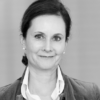
Insight – “Greatest professional success to date?”

This question was raised by Denise Remund of BriskMatch in a LinkedIn post this week. She herself reflected on it when the question was passed to her at a hen farewell party. She then paused first. For her, it’s not the superficially achieved milestones, such as a master's degree, a promotion, or a project commitment, but the courage to make decisions that determine her own career path.
That inspired me to think about the criteria that define success for me. In fact, these are not the decisive stages in the professional career, which can already be read in chronological order in an online portrait or CV. It’s the experience gained, the decisions taken and the opportunities seized, the effect of which lingers much more on the social, interpersonal level.
From my point of view, this also has to do with the creation of added value, i.e. the creation of shared values (see also Creating Shared Value). Nevertheless, with this blog post I leave the series of interviews with applied examples on the United Nations Sustainable Development Goals (UN SDGs) for a personal insight instead!

Atmosphere of mutual respect
In my early period of independence – based on the three pillars of writing, translating and language teaching – I taught a class of 21 young adults in German as a foreign language for the first time. It was the time of the Yugoslavian war and two participants were able to participate in this language course at a private educational institution thanks to the support of the aid organization HEKS-Sprachkurse | HEKS.
At the beginning of the semester course, the two participants from Serbia and Croatia respectively sat at a diametrical distance from each other. We all worked in a concentrated manner and as a group we pursued the same goal: the optimal and comprehensive preparation for the certificate examination. I was impressed by the great will and discipline of all participants. Everyone was extremely motivated, each of them had chosen this course and tried to make the most of it.
This will, joy and enthusiasm were very inspiring to all of us. We maintained an atmosphere of mutual respect. At the end of the semester, 20 participants registered, one person waived the exam. Of these, 19 participants passed, which made me enormously happy and relieved. At the end of the course after the exam – which was approved and corrected by an external examination committee – we met for the last lesson in the classroom. It was now possible to discuss and clarify questions that have arisen here.
I finally thanked all the participants for their great commitment. They had made me very comfortable to start my profession as a language teacher. In this last lesson, the participant from Serbia and the participant from Croatia were sitting next to each other at the same table, right back in the room – I still have the picture in front of me. The Croatian then rose and expressed his thanks on behalf of the whole class for the teaching and for the fact that they had learned a lot in these six months and finally passed the exam. I don't know when the two students found and exchanged ideas. That evening I saw them for the first-time united side by side like good friends.
For me, it has remained a symbol of the fact that in the diversity of cultures and nationalities, and especially in supposedly divided peoples, the individual always counts as well as the unifying element of mutual respect. It was one of the most touching moments in my professional life.

Honest Recognition
A second unforgettable moment was a spontaneous and equally unexpected compliment from a Managing Director at a former employer of a global pharmaceutical company. His task was to restructure the Swiss branch after a merger. From a communication perspective, this was by far one of the most intense and challenging phases I had experienced during twenty years of corporate communication. The focus on merging two organizations and forming a new common corporate culture, the initial great uncertainty about the new structures and, above all, who would remain on board, demanded all registers of change communication.
After five years, the Managing Director took on a new challenge within the Group and took advantage of the end-year celebration to thank the employees from all Swiss branches for their cooperation and to say goodbye in person. At the end of his review, he called me on stage and owed my work. The assembled colleagues replied with great applause. – It was the most beautiful compliment I received in my professional history! Thank you, Ad Ruijs! Thank you for the trust and opportunity I had received.
Feedback and recognition – formal as well as informal, verbally worded even before a pecuniary provided value – in my eyes are the most decisive extrinsic motivators. Vigilance and awareness should be part of every corporate culture. A topic that is repeatedly published, such as in the Elsevir Human Resources Management Review: "Feedback culture refers to an organization's supportive attitude to feedback that is not threatening, but behavioral, […] and strongly related to performance improvements and value-oriented results," according to Manuel London and James W. Smither (2002, pages 81-100).

Development opportunities for young talents
The third experience of success includes the promotion of young colleagues. I would like to give an example of this. During my time as a communications officer, he was at the headquarters of the international company La Praire Group.
We just had a shortage in our department, and I was given an intern for support. However, we could offer him a temporary contract only. We got along enormously well right away. He was interested, thoughtful, and acted foresightedly, had excellent manners, and remained self-critical and modest in everything he did. He also had a clear idea of where he wanted to develop. He was drawn to the financial world.
Thanks to my PR training, I knew a colleague from one of the major Swiss banks, who was looking for a young employee at the very time with the prospect of participating in an international funding program. He was given the opportunity to introduce himself, was challenged during the various conversations and put through his paces – he passed these tests with flying colors. This entry became his start into his professional career!
(Photo credits for the four images of this post: Unsplash)

